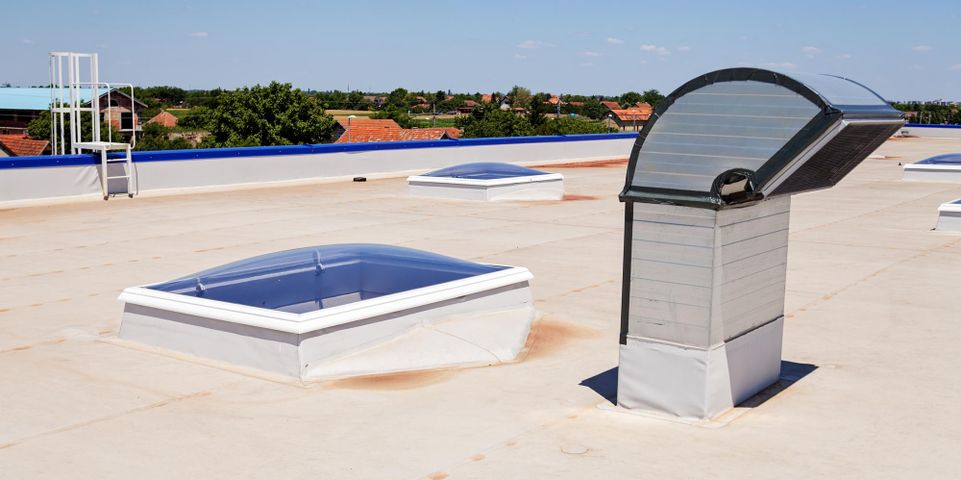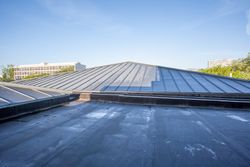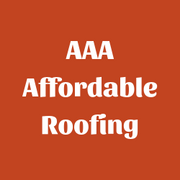
Most nonresidential buildings feature flat or slightly sloped roofs that require different materials to protect a greater square footage. When choosing a commercial roofing option, companies should consider durability, maintenance, and energy efficiency. Here is some insight into four common types of commercial roofing materials to help find the right fit for your needs.
Materials Commonly Used for Commercial Roofs
1. Spray Polyurethane Foam
Companies looking to cover an existing flat or slightly sloped roof may choose spray polyurethane foam because it’s quick and easy to install. Technicians spray the liquid mix, and it expands to form a solid protective layer. Correctly installed, SPF can last up to 50 years and doesn’t have seams that can contribute to water ponding on its surface.
There’s no need to address roofing cracks since the foam can expand and contract with temperature changes, reducing maintenance and repair needs. Plus, the material is considered environmentally friendly because it doesn’t have chlorofluorocarbons or volatile organic compounds that harm the ozone.
2. Modified Bitumen
Businesses with low-slope roofs often install bitumen roofing, known as SBS polymer-modified bitumen or APP polymer-modified membranes. SBS attaches to the roof with cold adhesives or just-poured asphalt. APP adheres to the building with a torch or heat-welding installation.
Each option features layers, with the first row, including the aggregate or asphalt, followed by a liquid adhesive, minerals, and laminate made of metal sheets. This mix of materials forms a hard layer with a surface that rarely cracks as weather conditions change. Some companies finish the top with reflective coatings to reduce cooling needs.
3. Metal
 Metal roofing comes in a wide variety of colors and styles, with corrugated galvanized steel as the most popular option. Building owners may consider installing the sheeting and then coating it with treatment to further protect against corrosion, sunlight, and precipitation. Metal commercial roofing often lasts 40 years and limits fire damage because it doesn’t combust or spread flames.
Metal roofing comes in a wide variety of colors and styles, with corrugated galvanized steel as the most popular option. Building owners may consider installing the sheeting and then coating it with treatment to further protect against corrosion, sunlight, and precipitation. Metal commercial roofing often lasts 40 years and limits fire damage because it doesn’t combust or spread flames.
4. Single-Ply Membrane
Single-ply membranes are rubber or synthetic sheets that adhere to roof surfaces or are fastened to the roof insulation. These lightweight commercial roofing materials often last 30 years and are popular for flat roofs.
This option is fire-retardant, and white versions can improve energy efficiency by reflecting sunlight instead of absorbing UV rays. Companies looking for a more environmentally friendly version may stick with the natural dark color, however. Buildings with odd-shaped roofs benefit from single-ply membranes because they’re customizable on-site and feature lower installation costs.
Businesses interested in updating their commercial roofs should contact AAA Affordable Roofing in Charlotte, NC, to discuss material options. The team has over 46 years of industry experience and is licensed and insured. Call the commercial roofing experts at (704) 564-5597 or visit the website for information on their excellent craftsmanship on roofing installations plus lifetime guarantees for shingles and gutters.
About the Business
Have a question? Ask the experts!
Send your question

